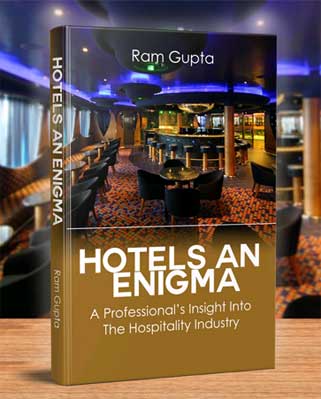There are so many versions on the evolution and history of Inns that, at least for me it is difficult to say hey, this is how it all started and this is when it started. However, logically and analytically speaking, one found many facts hidden facts between the lines of history. It is left then to your judgement to draw conclusions.
The need for travel must have triggered the demand for overnight sleepover places. Where the traveller could rest his horses, wash himself, eat good food with a drink and have a sound sleep before embarking upon the journey further the next day. The history so implies. Alehouses used to serve the travellers with home brewed beer and allow him to sleep in the barn or the kitchen. Inns would offer primarily room or dormitory accommodation with attached or shared bathrooms initially and as demand grew, rooms were provided with attached baths.
The rules governing the stay of the traveller were framed by the innkeeper and were quite strict. The main door of the inn would close at a certain hour and after that, one could not enter even if you were a guest. Since travel conditions those days were tough, people normally would travel alone. Many Inns would therefore not allow travellers with families to stay. One had to eat the fixed breakfast prescribed by the Inn Keeper and on shared tables. Yet the Inns enjoyed good occupancy and business in the absence of any alternative.
From those medieval days to the present day, the Inns have covered a lot of ground, seen enormous developments and embraced changes in the product, style and operations of modern day Inns. Even the traveller has changed to guests who no longer arrive on the horse back; he is a jet set traveller with totally fresh set of demands and expectations. Inns are now full service hotels, meeting the demand criteria of the guests. The brands command a price premium as the demand for rooms are quite high.
The factor that used to characterise the early day inns are, they were mostly or generally located on the intersection of two major roads, or at the entry of a city or near the railway station no more holds good. Today one finds Inns anywhere and everywhere. Airports, down town, city centre, beach or resort location, specially on ski resorts and golf resorts or for that matter even as part of a mixed development.
Since Inns are perceived as budget hotels, offering economical rates for its rooms and food and beverages, they normally attract the bulk of mid market segment and enjoy a relatively higher occupancy. Inns also have a much lower operating overheads and therefore even after lower revenues, are able to generate a healthy contribution to the bottom line. This cost benefit advantage of the product has prompted most of the big hotel chains to enter the Hotels Inn segment. It is a profitable business niche from investment angle.
Some of the big ticket Inn sign boards would read like the Fair Field Inns by Marriott Hotels, Days Inns & Quality Inn, Holiday Inns by Intercontinental Hotels, Premier Inns, Residence Inns, Park Inns, Hampton Inns and Suites, Sleep Inns and the list goes on. The advantage of big corporate launching Inn brands has been many folds. It gives a quality stamp to the Inn product and offers the opportunity to the Inn tag to ride on the back of upscale tags like the city hotels, down town hotels, luxury hotels etc.
Today, some hotels inns are as good in product development and quality as any luxury hotel or a 5-star hotel. They have good sized and well-appointed guest rooms, two to three gourmet restaurants, bars, pubs, discotheque, business centre, health club with a well-fitted gym, swimming pool. Meeting spaces and the works, yet they are shy to drop the "inn" tag afraid to loose the special status they enjoy. Inns would not like to get drowned in the deep ocean of the hotel world and loose their identity. Inns are a different world. Inns remind you of the nostalgic time journey of hotel evolution.
You have permission to publish this article without any change what so ever electronically, in print, in your e-book, or on your web site, free of charge, as long as the author by-lines are included.
Ram Gupta is a professional hospitality consultant with over four decades of experience in Asia, Far East, Middle East and Europe. He has been associated with over two dozen hotel projects. His web site can be viewed at http://www.bcgglobal.com and can be contacted at ramgupta@bcgglobal.com
Article Source: http://EzineArticles.com/?expert=Ram_Gupta

Releasing soon on Amazon and city book stores